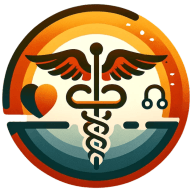Welcome to a comprehensive exploration of electronic health records systems. This blog post aims to delve into the complexities of these systems, their benefits, and challenges, and how they are revolutionizing healthcare. We will also discuss the future implications of these systems, and how they are set to redefine patient care and healthcare management.
Understanding Electronic Health Records Systems
Electronic Health Records (EHRs) systems are digital versions of patients' paper charts. They contain all the medical history of patients, including diagnoses, medications, treatment plans, immunization dates, allergies, radiology images, and laboratory test results. EHR systems are designed to go beyond standard clinical data collected in a provider’s office and can be inclusive of a broader view of a patient’s care.
EHRs can automate and streamline a provider's workflow, ensuring that all clinical information is in one place. With EHRs, information is available whenever and wherever it is needed. The EHR also has tools that providers can use for decision-making to enhance patient care. These systems are built to share information with other healthcare providers, such as laboratories and specialists, so they contain information from all clinicians involved in a patient’s care.
The Benefits of Electronic Health Records Systems
EHR systems offer numerous benefits to healthcare providers and patients. They improve the ability to diagnose diseases and reduce—even prevent—medical errors, improving patient outcomes. By having a patient's information in one place, EHRs assist providers in more effectively determining the best possible treatments.
EHRs also integrate and organize patient health information, making health management more efficient. They can also improve patient and provider interaction and communication, as well as health care convenience. EHRs enable patients to obtain and use their health information, and to interact with providers, by providing access to their health records, which can empower them to take control of their health outcomes.
The Challenges of Electronic Health Records Systems
Despite the numerous benefits, EHR systems also present some challenges. One of the main issues is the high cost of implementing and maintaining these systems. Additionally, there's a need for training for healthcare providers to effectively use these systems.
Another challenge is the issue of data privacy and security. With the digitization of health records, there's an increased risk of data breaches and unauthorized access to patient's records. Therefore, there's a need for stringent security measures to protect patient data.
The Future of Electronic Health Records Systems
The future of EHR systems is promising, with continuous advancements in technology. We can expect to see more sophisticated features in EHR systems, such as predictive analytics, which can help in predicting patient outcomes and providing personalized care.
Furthermore, with the rise of telemedicine, EHR systems will play a crucial role in providing remote care. They will enable healthcare providers to access patient records from anywhere, improving the delivery of care.
The Role of Electronic Health Records Systems in Patient Care
EHR systems play a crucial role in patient care. They ensure that healthcare providers have access to complete and accurate information about their patients, enabling them to make better decisions about their care.
EHR systems also improve coordination of care by enabling communication between different healthcare providers. They can also involve patients in their care by providing them with access to their health records.
The Impact of Electronic Health Records Systems on Healthcare Management
EHR systems have a significant impact on healthcare management. They improve efficiency by automating tasks, reducing paperwork, and minimizing the need for manual record-keeping.
They also enhance the quality of care by providing healthcare providers with decision-support tools. Furthermore, they facilitate research and quality improvement initiatives by providing a wealth of data that can be analyzed.
Wrapping Up: The Transformative Power of Electronic Health Records Systems
In conclusion, electronic health records systems are transforming healthcare delivery and management. Despite the challenges, their benefits far outweigh the drawbacks. As technology continues to advance, we can expect to see even more improvements in EHR systems, making them an indispensable tool in healthcare.

